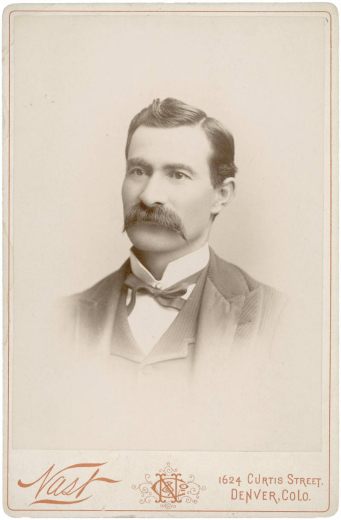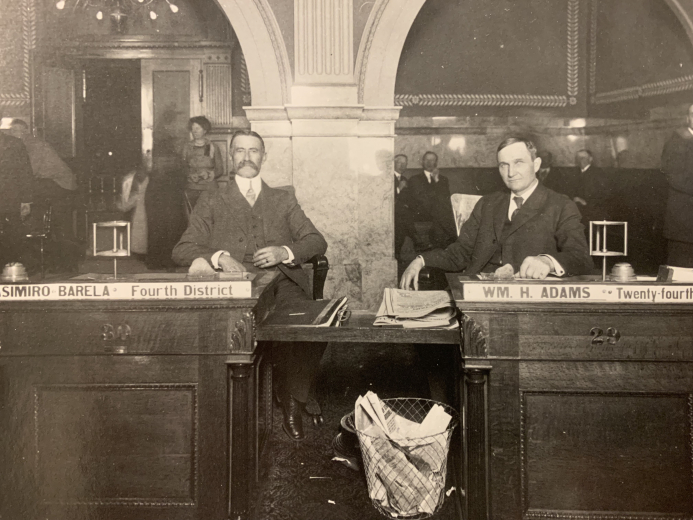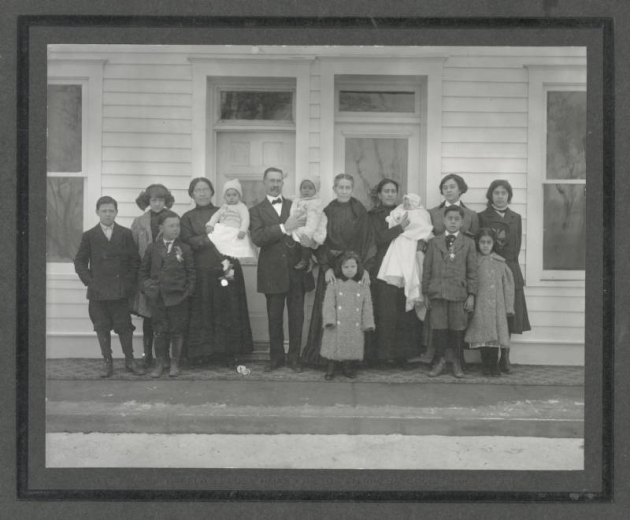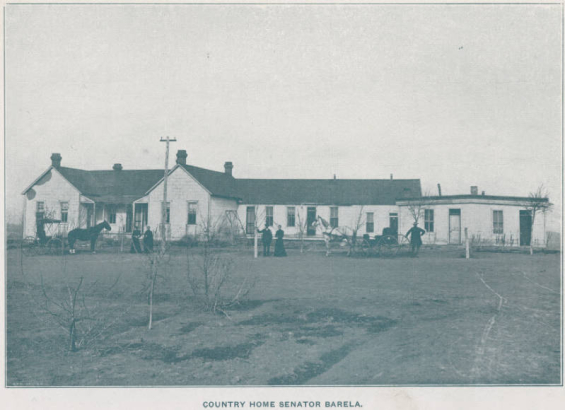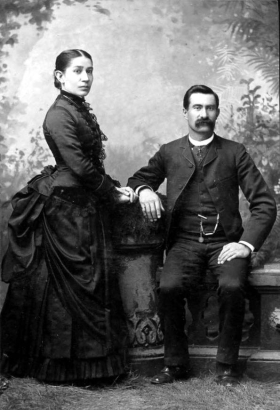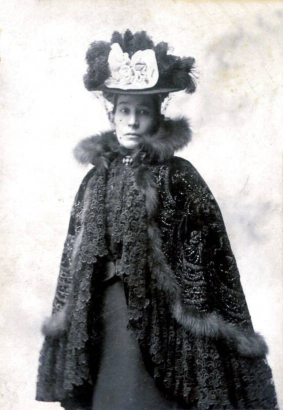Casimiro Barela was a long-serving senator in the Colorado legislature.
The first member of Casimiro Barela's family to come to the New World was also named Casimiro Varela (the "v" was later changed to a "b"). Varela arrived in California in 1777 with a group of 80 settlers from Spain. By 1847, the family was in the town of Embudo, New Mexico. Casimiro Barela was born in March of that year during a time when the US and Mexico were at war. When he was born, Embudo was part of Mexico. By the end of the war, it was part of the United States. His family did not move, but they became part of a new country overnight.
As a child, Casimiro worked on the family farm and was educated by Bishop J.B. Salpointe in Mora, New Mexico. Even when he worked in the field, he would often bring books with him. He also worked to become fluent in both Spanish and English. By the time he was 17, he made a trip to Southern Colorado and fell in love with the land along the Purgatory River Valley near Trinidad.
When Casimiro was 20 years old, he and his family moved to a farm just east of Trinidad. The city of Trinidad was only about six years old at the time. His family and many others applied for land under the Homestead Act. This led to greater and greater growth in the region.
During this time, he also made a trip back to New Mexico to marry his first wife, Josefita Ortiz. She returned to Colorado with him and he started his political career as a justice of the peace in 1869. He soon was named county assessor. He also grew more wealthy by raising sheep and horses and invested in the railroad and several local businesses.
In 1871, still in his early 20s, Casimiro was elected to the territorial legislature as a representative of Las Animas County. He was soon sent to Denver and met other representatives who spoke Spanish. What was fairly unique to Casimiro was his fluency in both English and Spanish. By 1875, this understanding of multiple cultures and languages would come to serve him well.
In 1875 he was named as one of 49 representatives tasked with writing a Constitution for the state of Colorado. Understanding the various immigrant groups that made up Colorado, he suggested the Constitution be written in Spanish, English and German so that more people could understand it. Colorado became a state the next year and its Constitution would be published in all three languages for the 30 years that followed.
In 1876, he was elected as a senator to the state legislature. After the death of his first wife, he married a wealthy woman from New Mexico named Damiana Rivera. Together, they became the wealthiest family in Southern Colorado. He continued to serve in the Senate and made it a point to defend the rights of minorities. As more Italians came to the state for mining and railroad jobs, he worked to represent them. He was also one of the first Colorado politicians to fight for women's suffrage.
At one point, an old Latino ranching family in Southern Colorado was being intimidated by the Rockefeller family's powerful Colorado Fuel & Iron Company. Casimiro took up the ranchers' cause and defended their right to the land. He also promoted statehood for New Mexico and set up Spanish language publications in Denver and Trinidad.
Casimiro Barela continued to serve the people of Southern Colorado, who were largely Latino. Sadly, prejudice began to grow in Colorado in the early 20th century and speaking out for Latino rights was becoming less popular. Barela won by a very slim margin in 1902 and elections became more difficult for him. In 1916, he was finally defeated by Wesley De Busk. He immediately retired to his estate in Las Animas County.
He continued to be a well-respected figure in state politics and among the Latino community. A few months before his death in 1920, he even attended the inauguration of President Obregon in Mexico. To this day, you can see him in the Colorado state capitol as his is one of 16 portraits displayed in stained glass in the rotunda.
fluent - able to speak a language easily and well
Homestead Act - a government program that gave land to people who were willing to live there and farm
justice of the peace - a local official that can settle small disputes and perform weddings
county assessor - an official who determines what property is worth in a county
fluency - to be fluent in a language
suffrage - the ability to vote in elections
rotunda - a large round room covered by a dome
What languages are you fluent in? Why do you think the ability to speak both Spanish and English was such an advantage for Casimiro?
What do you think it was like for him to have the border move and suddenly be a part of a different country?
What do you think pushed him to fight for the rights of minorities and women?
Casimiro Barela: The Perpetual Senator (Colorado Virtual Library)
Primary Source Materials (Chicano & Latino History Project)

